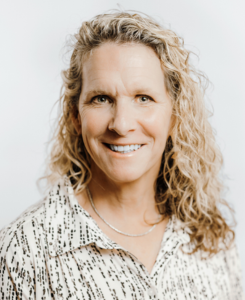Nonprofit Networking: How to Leverage Your Board for Fundraising Success

By Katrina Woodcox, Senior Consultant
Convincing your board to fundraise year after year, especially if it has not been a part of your organization’s culture, can be daunting. Yet, playing a role in fundraising is a necessary function of a board to ensure the long-term sustainability and future growth of an organization. While not every board member may be comfortable making a direct ask, board members can support your fundraising efforts by leveraging their personal and professional networks. Engaged board members can be one of your organization’s greatest fundraising resources–especially when they are well-prepared and equipped with the right tools.
When serving as the Executive Director of Butte Humane Society in Chico, California, we launched a capital campaign to build a new animal shelter and veterinary hospital. One month after embarking on the quiet phase of our campaign, the most destructive and deadliest wildfire in California’s history ravaged our neighboring community of Paradise, California. Within a few hours, the Camp Fire leveled 13,000 homes and decimated the community. Faced with rebuilding an entire town, the idea of fundraising for dogs and cats seemed like a lesser priority; yet, demand for our services surged as our community also grappled with the thousands of animals that were now homeless and in need of services, care, and shelter. Once our community recovered enough to inch forward, we pivoted and relaunched our campaign.
Our board campaign committee was now even more crucial to driving campaign momentum. As we sought to reinvigorate our fundraising efforts, I met with each committee member individually to discuss the campaign’s goals and solicit their involvement. These meetings were helpful in both generating enthusiasm and evaluating each board member’s unique fundraising comfort zone: Were they extroverted and comfortable making a direct ask, or did they prefer to assist by facilitating a prospect introduction?
- Consultant Tip: Check out CFA’s Guide to an Effective Nonprofit Campaign Committee
Board members were assigned a portfolio of donor prospects from their respective networks to either ask for a gift or to make an introduction. We prepared board members to become advocates for the campaign by conducting board trainings and rehearsing solicitation scenarios in both 1:1 and in group settings where I encouraged our board members to reframe their thinking about fundraising. Instead of directly asking friends and colleagues for a donation right out of the gate, I suggested that board members add meaning to their conversations by focusing on the personal impact that the organization had on their lives and how the new facility was going to save more animals and reduce overpopulation – tangible outcomes that resonate with donors and supporters. Passion and results are powerful tools for inspiring action.
- Consultant Tip: Use donor data strategies to keep a record of how board members and prospects are connected to each other.
In my experience working with board members on solicitation strategies, they often feel that asking for money is invasive, uncomfortable, and may even put a strain on a friendship. However, it is important to remind them that fundraising is not about “begging” or “arm twisting,” and often begins with “friendraising.” Having that mindset can help to alleviate some of the concern board members may have when talking to friends and colleagues about potential gifts. Board members’ motivations are born out of a passion they have for the organization, and if they can bring an authentic and transparent attitude to the conversation, it can help to inspire others to give out of that genuine connection and belief in the mission.
The Camp Fire, while devastating, brought our board campaign committee together and provided an opportunity for honest conversations and realignment. It also ignited an urgency to think creatively, to step out of comfort zones, and to engage with our broader community on an immediate level. Our board-led solicitations and introductions ultimately resulted in many of our campaign’s largest commitments. By leveraging the networks of our board members, opening doors, and introducing people to a cause we were all so passionate about, we were able to raise the funds to build a new facility when our community needed it the most.
Whether you are actively conducting a capital campaign or planning a strategy for an annual giving appeal (or everything in between!), continuous board networking is necessary to strengthen your organization’s relationship with your community and to cultivate future sources of support. Engaging your board will pay off in the long-term, even if natural disasters and other obstacles alter your carefully laid fundraising plans.
To learn more about leveraging your board for fundraising success, contact CFA today.

Katrina Woodcox, Senior Consultant
Katrina Woodcox comes to CFA with over 20 years of experience in nonprofit management, development, and community engagement. Before joining CFA, Katrina served as the Executive Director for Butte Humane Society (BHS), where she focused on creating annual campaigns, major gifts and planned giving programs, as well as fostering donor-centered, stewardship-rich development programs to help grow and sustain donor giving. Prior to BHS, Katrina was the Executive Director for the Downtown Chico Business Association. Katrina has also served as an independent consultant, working with a variety of nonprofit agencies throughout northern California to identify and achieve development and marketing goals.
As a Senior Consultant with CFA, Katrina focuses on providing Development Assessments, Campaign Feasibility Studies, Campaign Counsel and Strategic Planning. Katrina uses her past non-profit management experience, capital campaign knowledge, development acumen and her passion for storytelling to help find the right solutions for CFA’s partners.
Katrina currently resides in Chico, California, and holds a BA in Journalism/Public Relations from the California State University, Chico
